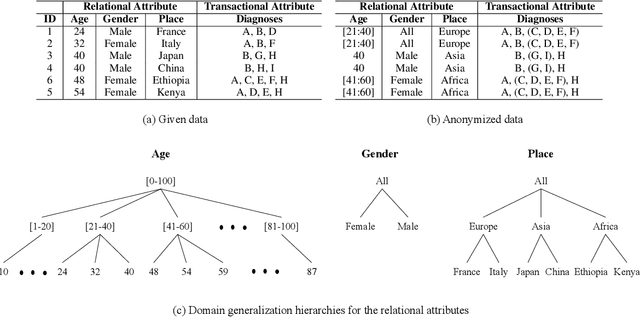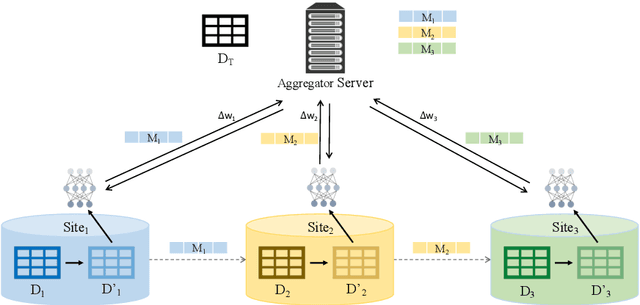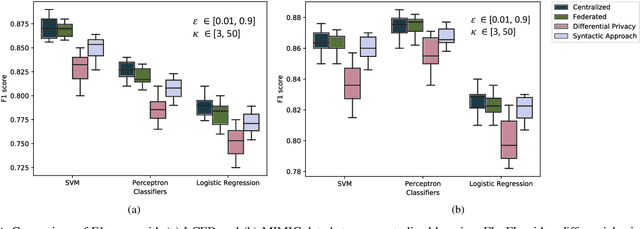Amar Das
Anonymizing Data for Privacy-Preserving Federated Learning
Feb 21, 2020



Abstract:Federated learning enables training a global machine learning model from data distributed across multiple sites, without having to move the data. This is particularly relevant in healthcare applications, where data is rife with personal, highly-sensitive information, and data analysis methods must provably comply with regulatory guidelines. Although federated learning prevents sharing raw data, it is still possible to launch privacy attacks on the model parameters that are exposed during the training process, or on the generated machine learning model. In this paper, we propose the first syntactic approach for offering privacy in the context of federated learning. Unlike the state-of-the-art differential privacy-based frameworks, our approach aims to maximize utility or model performance, while supporting a defensible level of privacy, as demanded by GDPR and HIPAA. We perform a comprehensive empirical evaluation on two important problems in the healthcare domain, using real-world electronic health data of 1 million patients. The results demonstrate the effectiveness of our approach in achieving high model performance, while offering the desired level of privacy. Through comparative studies, we also show that, for varying datasets, experimental setups, and privacy budgets, our approach offers higher model performance than differential privacy-based techniques in federated learning.
Differential Privacy-enabled Federated Learning for Sensitive Health Data
Nov 14, 2019

Abstract:Leveraging real-world health data for machine learning tasks requires addressing many practical challenges, such as distributed data silos, privacy concerns with creating a centralized database from person-specific sensitive data, resource constraints for transferring and integrating data from multiple sites, and risk of a single point of failure. In this paper, we introduce a federated learning framework that can learn a global model from distributed health data held locally at different sites. The framework offers two levels of privacy protection. First, it does not move or share raw data across sites or with a centralized server during the model training process. Second, it uses a differential privacy mechanism to further protect the model from potential privacy attacks. We perform a comprehensive evaluation of our approach on two healthcare applications, using real-world electronic health data of 1 million patients. We demonstrate the feasibility and effectiveness of the federated learning framework in offering an elevated level of privacy and maintaining utility of the global model.
 Add to Chrome
Add to Chrome Add to Firefox
Add to Firefox Add to Edge
Add to Edge